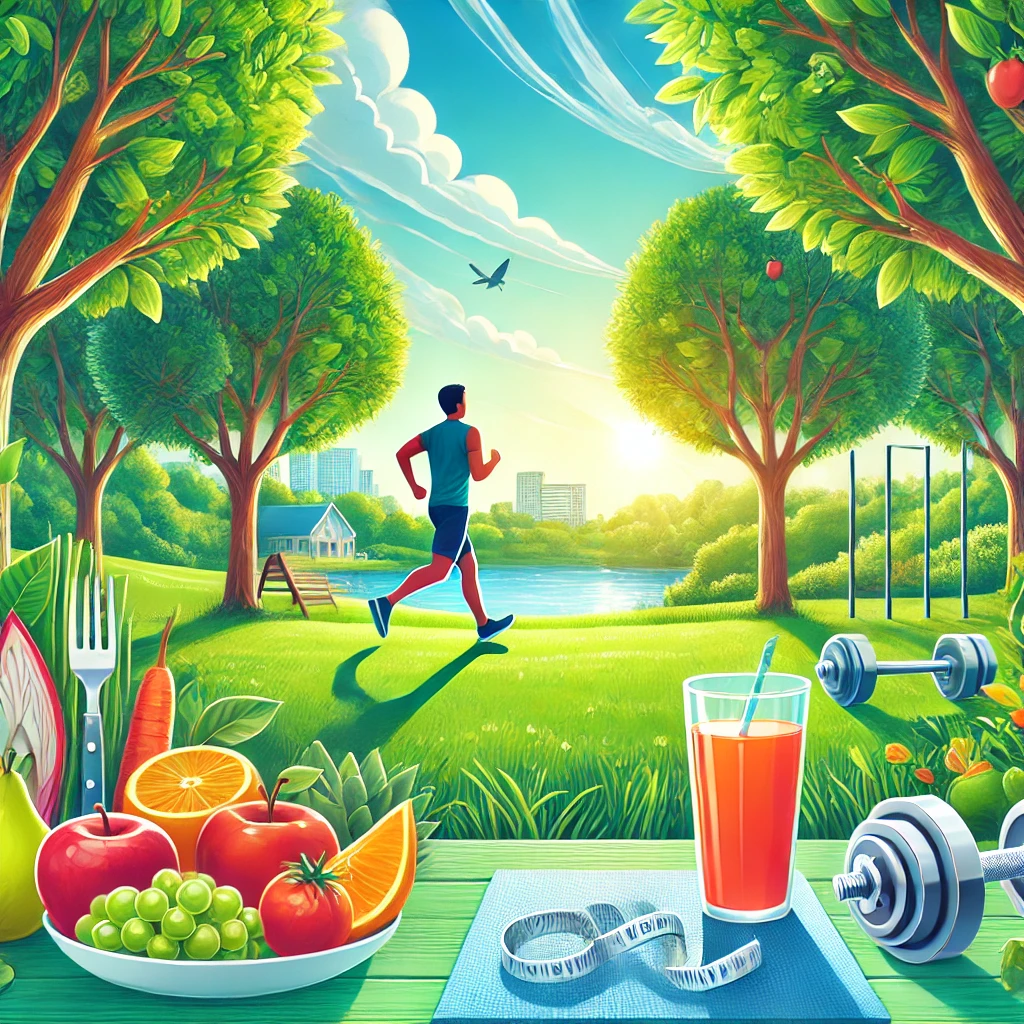Maintaining a healthy lifestyle is essential for overall well-being and longevity. Health is not just the absence of disease but a state of complete physical, mental, and social well-being. In today’s fast-paced world, prioritizing health can often take a backseat to work, social commitments, and other responsibilities. However, adopting and sustaining healthy habits is vital for leading a fulfilling and balanced life.
Physical Health
Physical health forms the foundation of a healthy lifestyle. Regular exercise, a balanced diet, adequate sleep, and avoiding harmful habits like smoking or excessive alcohol consumption are key components.
Exercise: Engaging in physical activity improves cardiovascular health, strengthens muscles, and enhances flexibility. It also boosts mood by releasing endorphins, commonly known as “feel-good hormones.”
Balanced Diet: A nutritious diet rich in fruits, vegetables, whole grains, and lean proteins provides the body with essential nutrients and energy. Reducing sugar, salt, and processed foods can help prevent chronic conditions like diabetes, hypertension, and obesity.
Sleep: Quality sleep is crucial for physical recovery and mental alertness. Adults should aim for 7-9 hours of uninterrupted sleep each night.
Mental Health
Mental health is equally important and intertwined with physical health. Stress, anxiety, and depression can negatively impact the body and mind.
Mindfulness and Relaxation: Practices like meditation, yoga, and deep-breathing exercises can help reduce stress and improve focus.
Social Connections: Building and maintaining healthy relationships can provide emotional support and combat loneliness, which is a growing concern in modern societies.
Seeking Professional Help: Recognizing the need for therapy or counseling is a strength, not a weakness. Professional guidance can provide strategies to cope with mental health challenges.
Preventive Healthcare
Preventive healthcare emphasizes early detection and management of potential health issues. Regular check-ups, vaccinations, and screenings are essential to identify and mitigate risks before they become serious problems.
Routine Check-ups: Regular visits to healthcare providers can help monitor blood pressure, cholesterol levels, and other vital health indicators.
Vaccinations: Staying up-to-date with vaccinations protects individuals and communities from preventable diseases.
Screenings: Age-appropriate screenings, such as mammograms, colonoscopies, and blood tests, are vital for early detection of conditions like cancer and cardiovascular diseases.
The Role of Technology in Health
Advancements in technology have revolutionized healthcare. Wearable devices track physical activity, heart rate, and sleep patterns, providing insights into personal health. Telemedicine enables remote consultations, making healthcare accessible to people in remote areas. Mobile applications offer resources for tracking nutrition, fitness, and mental health, empowering individuals to take charge of their well-being.
Challenges and Overcoming Barriers
Despite the known benefits of a healthy lifestyle, many individuals struggle to maintain one due to time constraints, financial limitations, or lack of knowledge. Addressing these challenges requires a multifaceted approach:
Education: Public awareness campaigns can inform people about the benefits of healthy choices.
Accessibility: Governments and organizations should work to make healthy food, safe exercise spaces, and healthcare services affordable and accessible.
Support Systems: Encouraging community programs and support groups can motivate individuals to stay on track.
Conclusion
A healthy lifestyle is a lifelong commitment that requires effort, discipline, and consistency. By focusing on physical health, mental well-being, preventive care, and leveraging technology, individuals can achieve a higher quality of life. Small changes, such as choosing a salad over fast food or taking a 15-minute walk daily, can lead to significant improvements over time. Remember, health is an investment, and the returns are invaluable.
